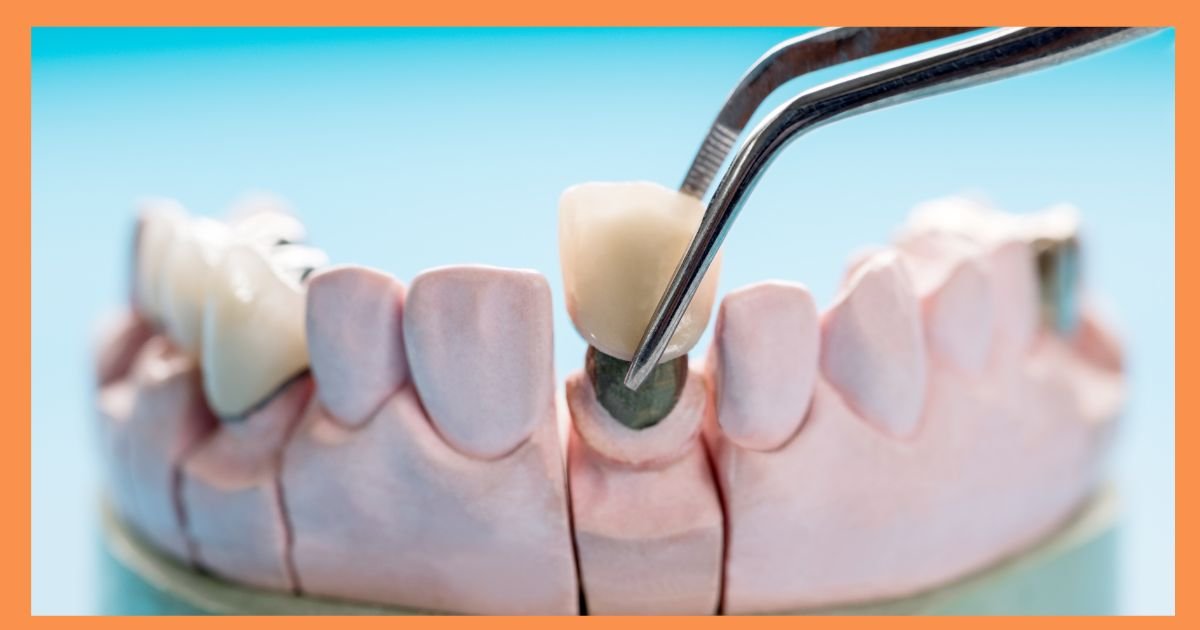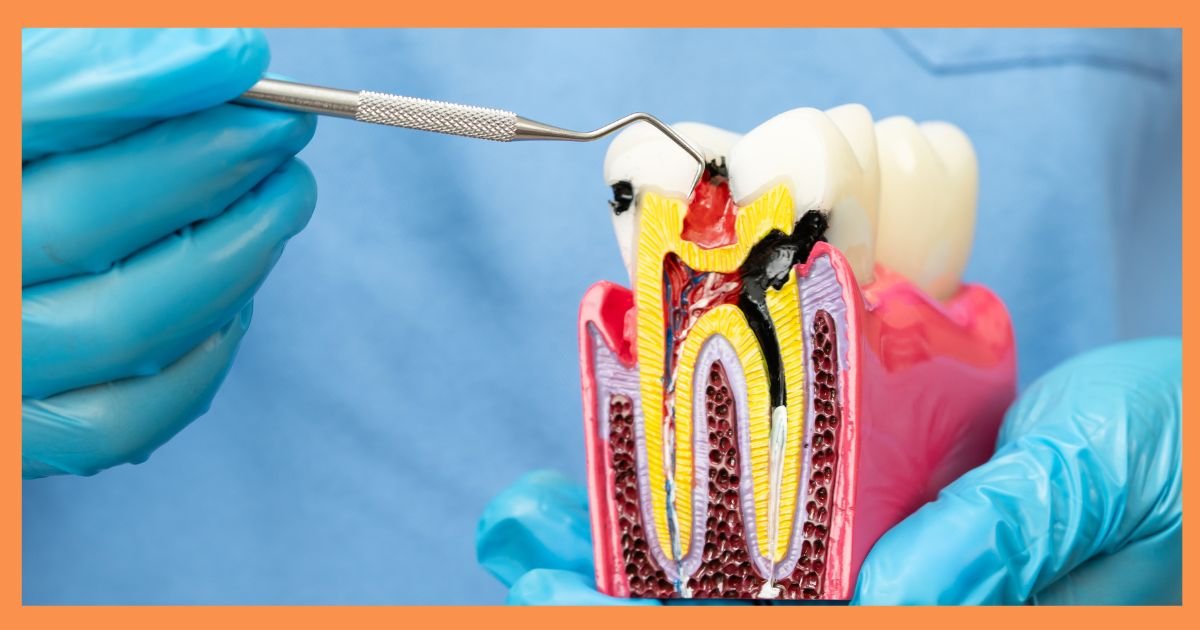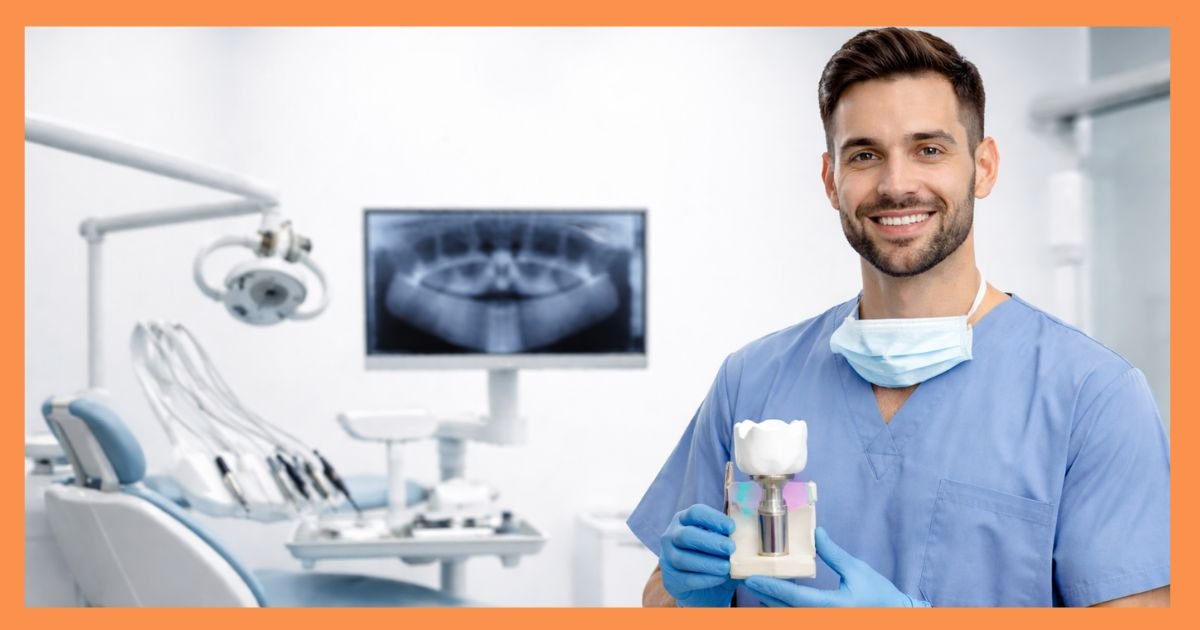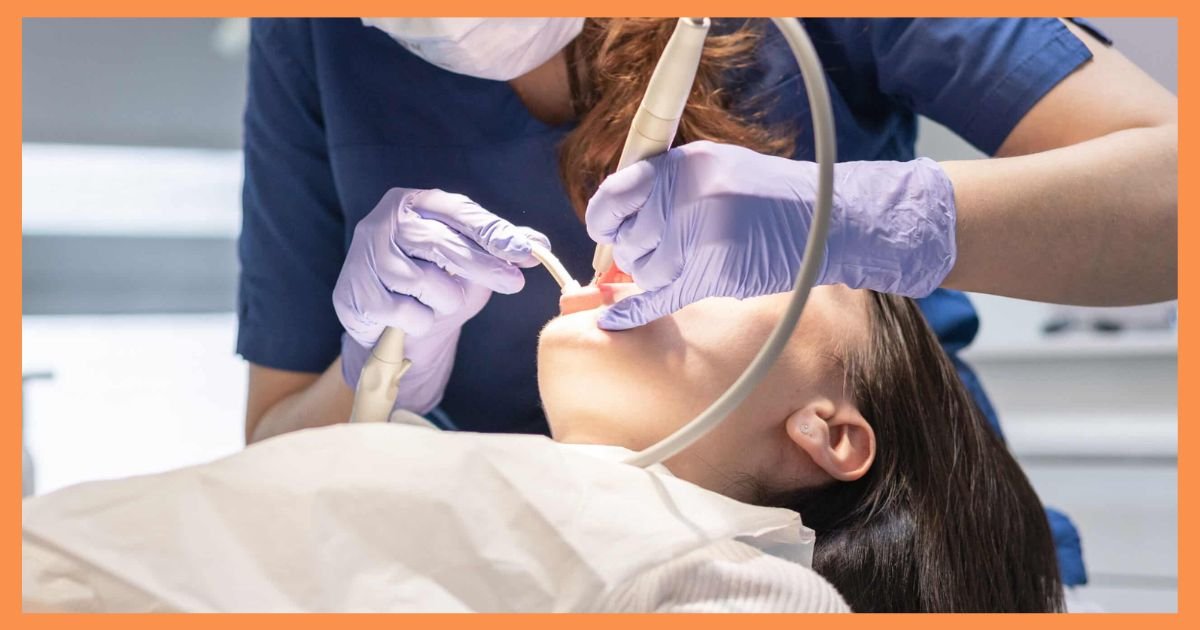Maintaining oral health with braces or Invisalign treatment requires special attention and care. Whether you’re new to braces or have been wearing them for a while, understanding how to keep your mouth healthy is crucial. At Dr. Khullar’s Dental Clinic, we aim to provide you with the best dental care in gurgaon and advice to make your orthodontic journey as smooth as possible. In this detailed blog, we’ll walk you through essential tips and strategies to ensure your oral health remains optimal while wearing braces.

Table of Contents
- Introduction
- Understanding Braces and Oral Health
- Daily Oral Hygiene Routine
- Brushing Techniques
- Flossing with Braces
- Mouthwash and Rinsing
- Dietary Considerations
- Foods to Avoid
- Recommended Foods
- Tips for Eating with Braces
- Managing Common Issues
- Soreness and Discomfort
- Handling Broken Brackets or Wires
- Dealing with Loose Bands or Appliances
- Maintaining Oral Health with Braces
- Regular Dental Visits
- Importance of Check-ups
- What to Expect During a Visit
- Benefits of Regular Visits
- Scheduling Your Appointments
- FAQs About Braces and Oral Health
- Conclusion
- Contact Us
1. Introduction
Braces are a powerful tool for correcting dental misalignments and achieving a beautiful smile. However, they come with a unique set of challenges that require careful management to maintain optimal oral health. If you’re undergoing orthodontic treatment either with braces or Aligners understanding how to care for your braces and keep your mouth healthy is essential. At Dr. Khullar’s Dental Clinic, best dental clinic in gurgaon located in DLF Phase 3, DLF Phase 5, Golf Course Road Gurgaon we are dedicated to providing you with the best dental care and guidance throughout your orthodontic journey.
Maintaining oral health with braces involves more than just regular brushing and flossing. The brackets, wires, and other components of braces can trap food particles and plaque, making it easier for plaque to accumulate and harder to clean. This can lead to issues like tooth decay, gum disease, and bad breath if not managed properly.
In this comprehensive guide, we’ll explore essential tips and strategies to ensure that your oral health remains excellent while wearing braces. From daily hygiene routines and dietary considerations to managing common problems and understanding the importance of regular dental visits, we’ll cover everything you need to know. Our goal is to help you navigate the complexities of braces care and achieve the best results from your orthodontic treatment, ensuring a healthy and beautiful smile for years to come.
2. Understanding Braces and Oral Health

Braces are an orthodontic device designed to correct issues with tooth alignment and bite. They consist of several components, including brackets, wires, and sometimes additional appliances like bands or spacers. Each part plays a crucial role in gradually shifting your teeth into their desired positions.
How Braces Work
- Brackets: Small squares bonded to the front of each tooth. They hold the archwire in place.
- Archwire: A thin metal wire that runs through the brackets and applies pressure to move the teeth.
- Ligatures: Small elastic bands that secure the archwire to the brackets.
- Bands and Appliances: Additional components may be used to help with specific issues, such as expanding the jaw or correcting bite problems.
Impact on Oral Health
Wearing braces can make oral hygiene more challenging. Food particles and plaque can easily get trapped around the brackets and wires, increasing the risk of dental problems if not properly managed. Here are some key aspects to consider:
- Plaque Buildup: Braces create additional surfaces and spaces where plaque can accumulate. If plaque is not removed regularly, it can lead to tooth decay and gum disease.
- Gum Health: Braces can sometimes cause gum irritation or inflammation. Proper care is needed to avoid gingivitis or more severe gum issues.
- Oral Discomfort: It’s common to experience some discomfort or soreness after getting braces or after adjustments. This is usually temporary but needs to be managed to maintain oral comfort.
Understanding these factors is essential for maintaining good dental oral health throughout your orthodontic treatment. Dr khullar, best dentist in gurgaon , aims to provide tailored advice and support to help you effectively manage your braces and ensure your oral health remains in top condition.
3. Daily Oral Hygiene Routine

Maintaining a strict oral hygiene routine is crucial when you have braces. Proper care helps prevent plaque buildup, tooth decay, and gum disease, which can be more challenging with braces in place. Here’s a step-by-step guide to ensuring your oral health stays optimal:
Brushing Techniques
- Choose the Right Toothbrush: Use a soft-bristled toothbrush to avoid damaging your braces and gums. An electric toothbrush with a special orthodontic brush head can also be beneficial.
- Brush After Every Meal: Aim to brush your teeth after every meal to remove food particles and plaque from around your braces. At a minimum, brush twice a day—morning and night.
- Proper Brushing Technique:
- Positioning: Hold the toothbrush at a 45-degree angle to your teeth and braces.
- Motion: Use gentle, circular motions to clean around the brackets and wires. Pay special attention to the areas where the brackets meet the teeth.
- Duration: Brush for at least 2-3 minutes to ensure you thoroughly clean all surfaces of your teeth and braces.
- Use Fluoride Toothpaste: Opt for fluoride toothpaste, which helps strengthen tooth enamel and prevent cavities.
Flossing with Braces

- Use Orthodontic Floss or Floss Threaders: Regular floss may not be effective with braces. Use orthodontic floss or floss threaders to clean between your teeth and around the braces.
- Floss Daily: Flossing removes plaque and food particles that brushing alone may not reach. Make it a part of your daily routine to maintain optimal oral hygiene.
- Flossing Technique:
- Thread the Floss: Gently slide the floss between your teeth and around the brackets.
- Clean Thoroughly: Wrap the floss around each tooth and move it up and down to clean the area between your teeth and around the brackets.
Mouthwash and Rinsing
- Use Fluoride Mouthwash: A fluoride mouthwash helps strengthen your tooth enamel and provides additional protection against cavities. Rinse after brushing and flossing.
- Antiseptic Mouthwash: If you experience gum irritation or soreness, an antiseptic mouthwash can help reduce inflammation and prevent infection.
- Rinse Thoroughly: Swish the mouthwash around your mouth for the recommended time, usually about 30 seconds, to ensure it reaches all areas of your mouth.
4. Dietary Considerations
When you have braces, your diet plays a significant role in maintaining oral health and ensuring you have the best orthodontic treatment in gurgaon. Certain foods can damage your braces or hinder your oral hygiene efforts, while others support both dental health and effective treatment. Here’s a detailed look at how to manage your diet while wearing braces:
Foods to Avoid
- Sticky Foods:
- Examples: Candy (like caramel or taffy), gum, and other sticky sweets.
- Why Avoid: Sticky foods can get caught in your braces, making them difficult to clean and increasing the risk of plaque buildup and tooth decay.
- Hard Foods:
- Examples: Nuts, popcorn, hard candies, and ice.
- Why Avoid: Hard foods can break or damage your brackets and wires, which can delay your treatment and cause discomfort.
- Sugary Foods and Drinks:
- Examples: Soda, sugary snacks, and desserts.
- Why Avoid: Sugary foods can contribute to tooth decay and cavities, particularly if oral hygiene isn’t meticulous.
- Chewy Foods:
- Examples: Bagels and tough cuts of meat.
- Why Avoid: Chewy foods can place extra stress on your braces, potentially loosening or damaging them.
Recommended Foods
- Soft Foods:
- Examples: Yogurt, mashed potatoes, scrambled eggs, and applesauce.
- Why Recommended: Soft foods are gentle on your braces and less likely to cause damage or discomfort.
- Cooked Vegetables:
- Examples: Steamed carrots, cooked spinach, and soft bell peppers.
- Why Recommended: Cooking vegetables makes them easier to chew and less likely to harm your braces.
- Dairy Products:
- Examples: Cheese, milk, and yogurt.
- Why Recommended: Dairy products provide essential nutrients like calcium and vitamin D, which support strong teeth and bones.
- Fruits and Vegetables:
- Examples: Soft fruits like bananas, berries, and ripe peaches.
- Why Recommended: These are generally safe for braces if they are soft and not too fibrous.
- Whole Grains:
- Examples: Soft bread, cooked rice, and pasta.
- Why Recommended: Whole grains are less likely to damage your braces compared to hard or crunchy varieties.
Tips for Eating with Braces
- Cut Food into Small Pieces: To avoid putting excessive pressure on your braces, cut your food into small, manageable pieces.
- Chew Carefully: Chew food slowly and evenly to reduce the risk of damaging your braces.
- Stay Hydrated: Drink plenty of water to help flush food particles and maintain good oral hygiene.
By adhering to these dietary guidelines, you can help ensure that your braces remain in good condition and that your orthodontic treatment proceeds as planned.
5. Managing Common Issues
Braces are a valuable tool in achieving a perfect smile, but they can sometimes present challenges. Understanding how to manage common issues can help you maintain comfort and ensure your orthodontic treatment progresses smoothly. Here’s a guide to handling some of the most frequent problems associated with dental braces:
Soreness and Discomfort
- Temporary Pain After Adjustments:
- Cause: It’s normal to experience some discomfort or soreness after your braces are adjusted. This happens because the braces are applying new pressure to your teeth to move them into place.
- Management: Over-the-counter pain relievers, like ibuprofen, can help alleviate discomfort. Applying a warm compress to your cheeks may also provide relief.
- Gum and Mouth Irritation:
- Cause: Braces can sometimes irritate the soft tissues in your mouth, such as the inside of your cheeks or gums.
- Management: Use orthodontic wax to cover any areas where the braces are rubbing against your mouth. This wax creates a smooth surface that reduces irritation. Rinsing with a warm salt water solution can also help soothe sore areas.
Handling Broken Brackets or Wires
- Loose or Broken Brackets:
- Cause: Brackets can become loose or break due to eating hard or sticky foods or accidental impacts.
- Management: If a bracket comes loose or breaks, contact Dr. Khullar’s Dental Clinic as soon as possible. In the meantime, use orthodontic wax to cover any sharp edges to prevent irritation. Avoid eating hard or sticky foods to minimize further damage.
- Wires Poking Out:
- Cause: Wires may sometimes shift out of place and poke into the inside of your mouth.
- Management: If a wire is poking and causing discomfort, use a pencil eraser or a cotton swab to gently push it back into place. If you’re unable to fix it yourself, contact our clinic to schedule an appointment for a repair.
Dealing with Loose Bands or Appliances
- Loose Bands:
- Cause: Bands that hold certain appliances in place can become loose due to eating hard foods or natural wear.
- Management: If a band becomes loose, contact Dr. Khullar’s Dental Clinic for an adjustment. Avoid playing with the loose band, as it can cause additional damage.
- Problems with Other Appliances:
- Cause: Appliances like spacers or expanders may sometimes cause discomfort or become misaligned.
- Management: For issues with these appliances, follow any specific instructions given by your orthodontist and contact our clinic if problems persist.

Maintaining Oral Health with Braces
- Plaque Buildup:
- Cause: Braces can trap food particles and plaque, making it harder to clean your teeth thoroughly.
- Management: Brush your teeth after every meal and floss daily to remove plaque and food particles. Consider using an interdental brush or a water flosser to help clean around the brackets and wires.
- Bad Breath:
- Cause: Poor oral hygiene and food particles trapped in braces can lead to bad breath.
- Management: Maintain a rigorous oral hygiene routine, use mouthwash, and visit Dr. Khullar’s Dental Clinic regularly for professional cleanings to keep bad breath at bay.
By addressing these common issues proactively and seeking assistance when needed, you can help ensure a smoother and more comfortable experience with your braces.
6. Regular Dental Visits
Regular dental visits to the best oral surgeon in Gurgaon are crucial for anyone undergoing orthodontic treatment with braces. These appointments ensure that your braces are functioning properly and that your teeth and gums are healthy throughout the treatment process. Here’s why maintaining consistent visits to Dr. Khullar’s Dental Clinic is essential:
Importance of Regular Check-Ups
- Monitor Treatment Progress:
- Purpose: Regular visits allow your orthodontist to assess how well your teeth are moving and make any necessary adjustments to your braces.
- Benefit: Timely adjustments help ensure that your treatment is progressing as planned, reducing the likelihood of extended treatment times.
- Ensure Proper Braces Function:
- Purpose: The orthodontist checks that all components of your braces, including brackets, wires, and bands, are intact and functioning correctly.
- Benefit: Identifying and addressing any issues with your braces early can prevent complications and ensure effective treatment.
- Prevent and Address Issues:
- Purpose: Regular check-ups help identify problems such as loose brackets, broken wires, or signs of plaque buildup and gum irritation.
- Benefit: Addressing these issues promptly prevents them from impacting your treatment and oral health.
What to Expect During Your Visits
- Adjustment Appointments:
- What Happens: The orthodontist will make necessary adjustments to the wires and brackets to continue guiding your teeth into the desired positions.
- Frequency: These appointments are typically scheduled every 6-8 weeks, but the exact timing may vary based on your treatment plan.
- Cleaning and Examination:
- What Happens: During your visit, your teeth will be cleaned to remove plaque and tartar buildup. The orthodontist will also examine your dental oral health and check for any issues related to your braces.
- Frequency: Regular cleanings should be performed every 6 months, or as recommended by your orthodontist.
- Consultation for Concerns:
- What Happens: If you experience any problems or discomfort with your braces, discuss them during your visit. Your orthodontist will provide solutions and advice to address your concerns.
- Frequency: Consultations for specific issues may occur as needed between regular adjustment appointments.
Benefits of Regular Visits
- Achieve Optimal Results:
- Benefit: Consistent visits to a best oral surgeon in Gurgaon ensure that your braces are adjusted correctly and that your teeth are moving as planned, leading to the best possible results from your orthodontic treatment.
- Maintain Good Oral Health:
- Benefit: Regular cleanings and examinations help prevent dental issues such as cavities and gum disease, which can be exacerbated by braces.
- Stay Informed:
- Benefit: Regular visits provide an opportunity for you to ask questions, learn more about your treatment, and receive personalized care and advice.
Scheduling Your Appointments
To keep your orthodontic treatment on track, it’s essential to schedule and attend all recommended visits. If you need to make or reschedule an appointment, contact Dr. Khullar’s Dental Clinic
7. FAQs About Braces and Oral Health
Q: How often should I visit the dentist while wearing braces?
A: We recommend visiting Dr. Khullar’s Dental Clinic every 4-6 weeks for adjustments and to ensure your treatment is progressing as planned for your best dental care.
Q: Can I use an electric toothbrush with braces?
A: Yes, an electric toothbrush can be effective for cleaning around braces. Just make sure it has a soft brush head to avoid damaging your braces and gums.
Q: Is it normal to experience pain with braces?
A: Some discomfort is normal, especially after adjustments. However, if you experience severe pain or notice any problems with your braces, contact our clinic for advice.
Q: Can braces cause bad breath?
A: Yes, dental braces can contribute to bad breath if food particles and plaque are not adequately cleaned. Maintaining a rigorous oral hygiene routine can help prevent this issue.
8. Conclusion
Maintaining braces in Gurgaon requires extra effort and attention. By following these tips and guidelines, you can keep your teeth and gums healthy throughout your orthodontic treatment. At Dr. Khullar’s Dental Clinic, we are committed to providing the best dental care in gurgaon and support for all your orthodontic needs. For personalized advice or to schedule an appointment, visit us in DLF Phase 3, DLF Phase 5, Golf Course Road Gurgaon.
To get your best invisilgn treatment started, or to book an appointment, please contact Dr. Khullar’s Dental Clinic








